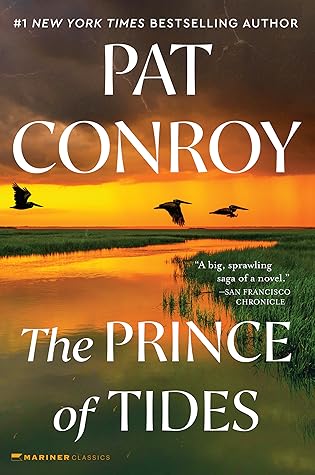More on this book
Community
Kindle Notes & Highlights
“You make jokes about your sister’s psychosis. What an odd man you are!” “It’s the southern way, Doctor.” “The southern way?” she said. “My mother’s immortal phrase. We laugh when the pain gets too much. We laugh when the pity of human life gets too . . . pitiful. We laugh when there’s nothing else to do.” “When do you weep . . . according to the southern way?” “After we laugh, Doctor. Always. Always after we laugh.”
To love one’s children is to love oneself, and this was a state of supererogatory grace denied my parents by birth and circumstance. I needed to reconnect to something I had lost. Somewhere I had lost touch with the kind of man I had the potential of being. I needed to effect a reconciliation with that unborn man and try to coax him gently toward his maturity.
I have tried to understand women, and this obsession has left me both enraged and ridiculous. The gulf is too vast and oceanic and treacherous. There is a mountain range between the sexes with no exotic race of Sherpas to translate the enigmas of those deadly slopes that separate us.
MY GRANDMOTHER, TOLITHA Wingo, is now dying in a Charleston nursing home. Her mind, as they say, is wandering a bit, but she still has rare moments of perfect clarity when one can glimpse the full, illuminant personality that her advancing age has veiled with a shroud of senility. The capillaries in her brain seem to be drying up slowly, like the feeder creeks of an endangered river. Time no longer means the same thing to her as it does to us; she no longer measures it out in hours and days. It is a river she walks from its source to its delta. There are moments when she is a child asking her
...more
This highlight has been truncated due to consecutive passage length restrictions.
Her secret, we would discover, was that once you have traveled, the voyage never ends, but is played out over and over again in the quietest chambers, that the mind can never break off from the journey.
Whenever my father hit us, my mother would say, “He only did it because he loves you.” Whenever my mother struck us with her hairbrush, her broom, her hands, she did it in the name and under the sign of love. Such love as we got hovered beneath the sign of Mars, a frayed refugee of some debased and ruined zodiac. But my grandmother brought back from her journeys a revolutionary doctrine: Love has no weapons; it has no fists. Love does not bruise, nor does it draw blood.
If your parents disapprove of you and are cunning with their disapproval, there will never come a new dawn when you can become convinced of your own value. There is no fixing a damaged childhood. The best you can hope for is to make the sucker float.


